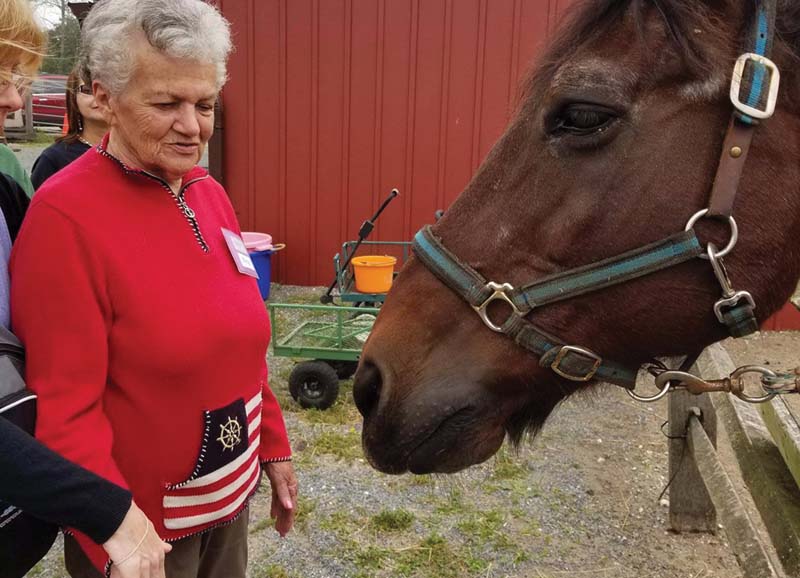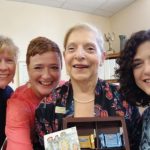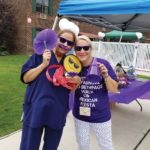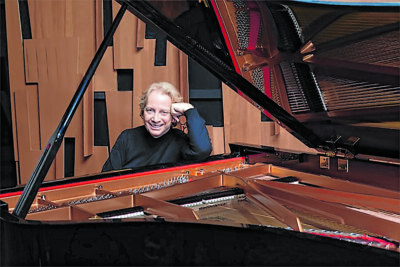
Not remembering where you left your keys or if you forgot to turn off the garage light, albeit an annoyance, is one thing. But not remembering your own life and being unable to recognize your loved ones is a truly heartbreaking way to go from day to day. Alzheimer’s disease is a progressive illness that affects and destroys memory and other mental functions, and while there are treatment options, there is unfortunately, still no cure.
The Alzheimer’s Disease Resource Center (ADRC) is an organization with a continued mission is to support research that may lead to a cure for Alzheimer’s disease, to provide care, support and education programs for families in need, and to be advocates for local families who are coping with Alzheimer’s and other dementias. Mary Ann Malack-Ragona serves as the executive director and CEO of ADRC and she is responsible for quite a bit of what goes on at the center.
“Everything that entails implementing the entire operation of the organization from financial aspects, grants, marketing and advertising to our programs which include art, music and equine therapy as well as support groups, that’s where I come in,” said Ragona, who has been with the Alzheimer’s Disease Resource Center since 2003. “The equine program out at Spirit’s Promise in Riverhead really lights up the faces of people with this disease and I hope it goes on in perpetuity.”
In the 15 years she has been with the organization, she believes that while research for Alzheimer’s has come very far, there is still a long road to be traveled. She spoke of a moment in 2012 where she realized that a lot of money that was supposed to be used for research was leaving Long Island to cover other financial expenses.
“After watching this all these years and seeing the federal government putting money into these projects, in reality we hadn’t moved very far,” she said of the plight to find a cure. “We refocused our resources more locally—we see about 3,000 a families a year that need help and support—to fund our research and make sure every penny of donations that come in are maximized.”
Ragona noted that she believes 75 cents of every dollar should go to programs, adding that the ADRC donated a major gift to NYU in April and has plans to make another donation to stem cell research in the fall. She also spoke of the project at NYU Winthrop with Allison Reiss, MD, who received a $10,000 grant ADRC to pursue research for her blood brain barrier project.
“There is a huge belief that uncontrolled diabetes leads to memory loss and is a cause for Alzheimer’s disease as it progress,” said Ragona. “I had an opportunity to visit with the New York Stem Cell Foundation in Manhattan and they’re doing exciting and meaningful work in the world of diabetes and Alzheimer’s. We believe at some point, their work will slow down or cure Alzheimer’s Disease.”
The ADRC is also very big on education, with an understanding that individuals hired to take care of people with Alzheimer’s, do not always have the skills to do so correctly. According to Ragona, the ADRC has developed programs that bring new knowledge into the hands of physicians and informal caregivers.
 “Family caregivers who couldn’t get out or be part of an information group about programs and services can now find everything under one roof,” she said of the ADRC’s conference expo that featured 81 vendors covering the entire continuum of care for Alzheimer’s. “
“Family caregivers who couldn’t get out or be part of an information group about programs and services can now find everything under one roof,” she said of the ADRC’s conference expo that featured 81 vendors covering the entire continuum of care for Alzheimer’s. “
Attorneys, doctors who make house calls, home companion services, certified home health agencies, the VA for veterans’ benefits and assisted living, it’s all available information and so much can be accomplished at this event.”
The ADRC runs six support groups out of the Bayshore office and is affiliated with 35 supports groups across Nassau and Suffolk County. The organization also has several satellite offices for those who are unable to travel. As for getting involved with ADRC, it is a welcome and simple process.
“We have a nice grouping of volunteers who do everything from making packets for families to manning the reception desk. We also have a beautiful serenity garden donated by a family and we were able to bring a special luau night to the caregivers who couldn’t go out,” said Ragona of just how many groups of people are involved. “It takes a village to do that. We are constantly in touch with our families to keep them abreast of what goes on and we’ll keep doing so until there is a cure.”
The ADRC’s East End Walk for Alzheimer’s and Fall Festival will take place on Oct. 13 at the Long Island Aquarium in Riverhead.
For more information on ADRC as well as upcoming events, call 631-580-5100 or visit www.adrcinc.org. The Alzheimer’s Disease Resource Center is located at 45 Park Ave., Bay Shore, NY.






















